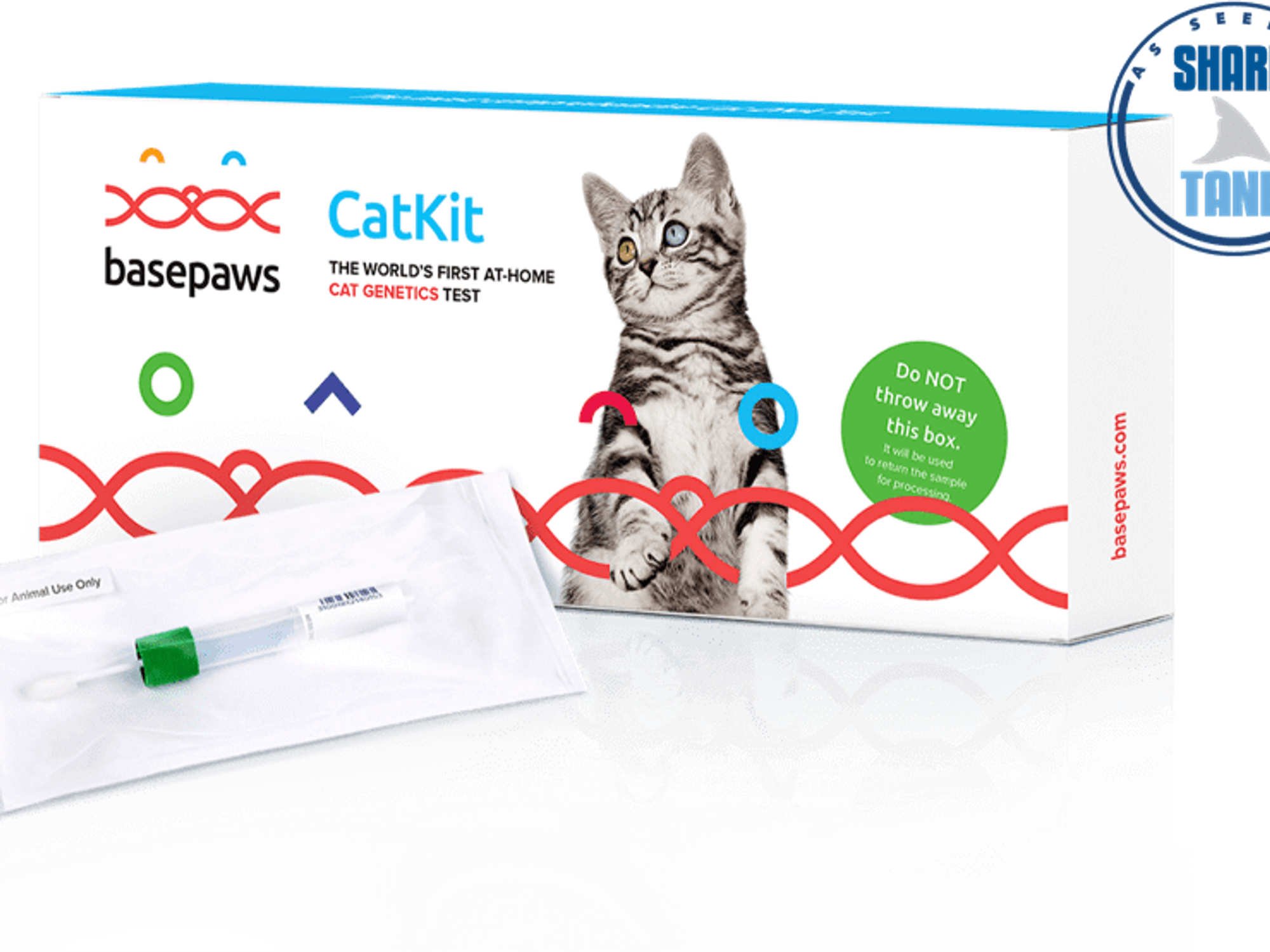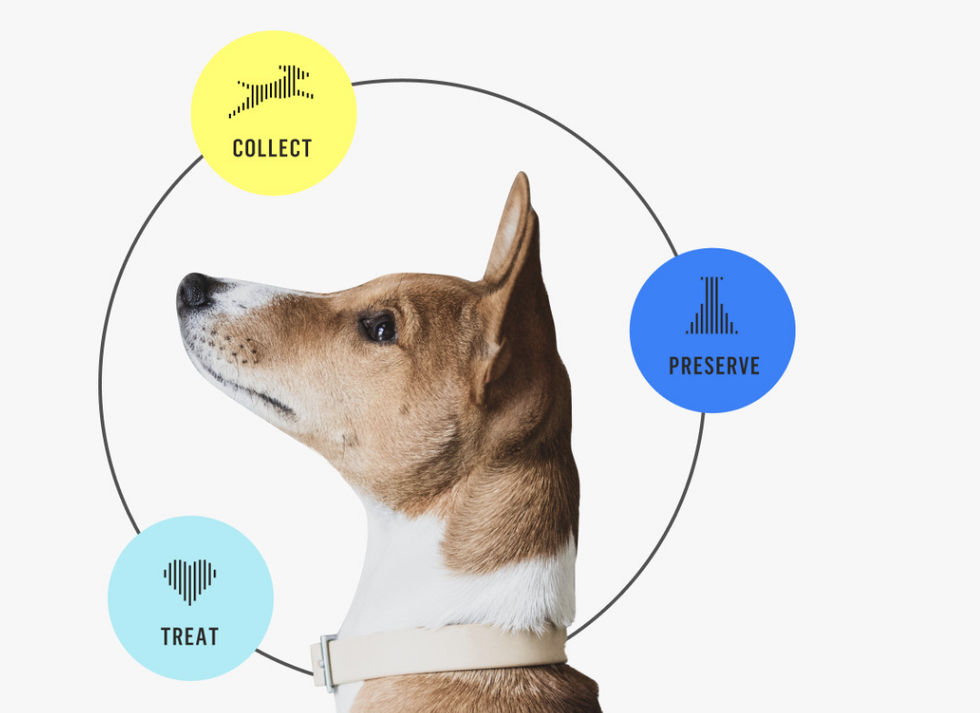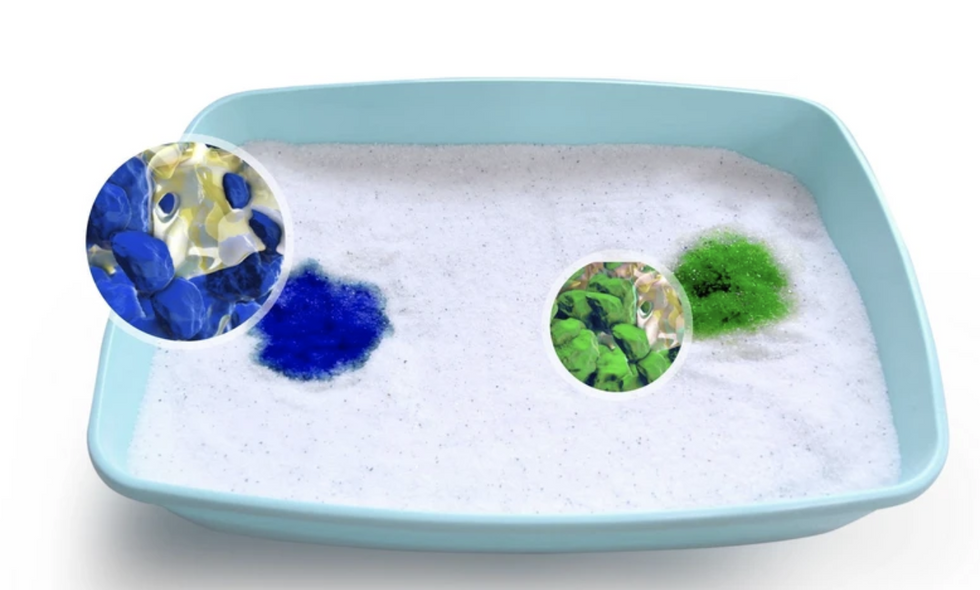Dogs and Cats - Living Together: The $75B Pet Economy and Why Los Angeles is Headquarters
Rachel Uranga is dot.LA's Managing Editor, News. She is a former Mexico-based market correspondent at Reuters and has worked for several Southern California news outlets, including the Los Angeles Business Journal and the Los Angeles Daily News. She has covered everything from IPOs to immigration. Uranga is a graduate of the Columbia School of Journalism and California State University Northridge. A Los Angeles native, she lives with her husband, son and their felines.

Snuggling on a chair, hovering over a laptop, stretched out on the floor, the long haired-haired, vaguely Calico-looking Koko with his own Instagram feed is a cat influencer in the making. He is also the face of Basepaws, a feline DNA testing service that's trying to tap into the $75 billion spent on pets in the U.S.
Gingi, a sweet feline that died too young, is the inspiration behind startup PrettyLitter, a mail-order cat litter that monitors feline health. And then there's dozens of dogs that inspired DogVacay, a pet sitting app that was sold last year to Rover. Founder Aaron Hirschhorn launched a new service last fall – stem cell storage banks for pets – motivated by his own experience using the regenerative treatment.
According to Pitchbook, pet tech startups in Los Angeles County have pulled in more than $500 million in investments in the last six years. The largest and most well-known came from Softbank Vision Fund for Wag Labs — once the poster child for app-powered pet services. As Wag struggles to compete with venture capital-backed Rover, a slew of other pet tech companies are making their mark offering premium services.
"When I started DogVacay in 2012, I heard venture doesn't belong in pets. I got lots of 'No, the markets are too small,' said Hirschhorn, who has raised $11 million in funding led by Maveron for his latest venture, Gallant. "Now, the first thing that I hear is that people spend so much on their pets."

Gallant, which launched in the fall, charges a $395 processing fee and $95 a year to store stem cells removed by a veterinarian when pets are spayed or neutered. It aims to make canine life healthier and longer. The company, which has a Federal Drug Administration compliant lab in La Jolla, appeals to veterinarians who can charge a fee for their service and have the promise of pets returning for treatment as they age.
The Pet Economy
Americans love their four-legged friends. More than half of U.S. households own a pet and while ownership rates haven't grown dramatically over the last decade, the amount people willing to spend on their animals has. The American Pet Products Association estimates last year spending topped $75 billion from $45 billion a decade earlier. And the figure is quadruple what it was in 1994.
"We see a ton of interest in the space," said Mike Jones, head of the Santa Monica incubator and investment firm Science Inc. His firm, which invested in DogVacay and Rover, recently backed DogDrop, a flexible canine day care. Jones said they made the calculation that with millennials choosing to have children later in life, animals would play a bigger role. "There's a lot of disposable income that people can spend on pets," he said. "The price point they are willing to spend is way higher."
There's companies like Modern Animal, a Playa Vista-based startup that wants to revamp veterinary clinics for the digital age with telemedicine and other services. It raised $13.5 million in seed funding last fall.

Scratchpay, a Pasadena-based company that offers financing for veterinary care, scored $65 million in a Series B round in October.
And then there's companies more akin to Gallant like PrettyLitter, a mail-order litter that monitors for health by turning colors when urine shows unusual signs of alkalinity and other factors.
Their growth is part of a larger trend powered by Americans' relationship with their pets, mostly dogs. This humanization, as those in the pet industry like to call it, has driven a push in luxury products and services.
"More and more people are thinking of their pets as parts of their family, as human beings," said Hal Herzog, a professor of psychology at Western Carolina University who has spent decades looking at the relationship between human and animals.
"We spend twice as much on pets per capita as we did 30 years ago."
Where's the money going? On the extravagant side, there's pets spas, canine herbal medicine, Louis Vuitton pet carriers, and diet delivery services. And there's also a booming trend of influencer canines who have their own agents, like Instagram star JiffPom (and his 9.8 million followers).
Pet owners are willing to go to extremes to spoil their dogs and cats -- even wading into unregulated pet technology to keep them healthy.
Unregulated Pet Technology
Founded in 2016 by Anna Skaya, Basepaws promises to tell feline owners with a sample of saliva from their cheek, "the secrets to keeping their health in tip-top shape." The El Segundo-based company presents itself as a health service but operates in a non-regulated zone, along with several other pet companies coming up including PrettyLitter and Gallant.
Skaya, who previously ran Groupon in Russia, originally wanted to name her company 23andMeow. Her proprietary genetic testing provides cat owners with information about their breeds along with hereditary disease. For humans those service are approved by the Federal Drug Administration. Still they aren't intended for diagnostic purposes and there are various levels of evidence to support many of their claims.

And while Skaya and PrettyLitter founder Daniel Rotman say that their services are not diagnostic — merely a tool — they want pet owners looking to improve their animals health to turn to them.
"When you do a DNA test it opens up this world about breeds and diseases," she said. "I always say the cats can't talk but their DNA can." Last year, she clinched $250,000 on Shark Tank and is looking to close a $2.5 million seed round next month.
The service runs $129 and she sees her company, growing to include nutrition products. Hirschhorn, who invested in Basepaws, sees it working for the very same reasons that he believes his own company will take off. "There's this macro trend toward health rather than fighting diseases," Hirschhorn said, adding that it's the same reason humans are taking greater care of themselves.
Skaya has loftier goals: "If we know what diseases they have, we can make sure they are not breeding. We are eradicating genetic diseases."
Rachel Uranga is dot.LA's Managing Editor, News. She is a former Mexico-based market correspondent at Reuters and has worked for several Southern California news outlets, including the Los Angeles Business Journal and the Los Angeles Daily News. She has covered everything from IPOs to immigration. Uranga is a graduate of the Columbia School of Journalism and California State University Northridge. A Los Angeles native, she lives with her husband, son and their felines.




 Image Source: Skyryse
Image Source: Skyryse
 Image Source: Northwood Space
Image Source: Northwood Space